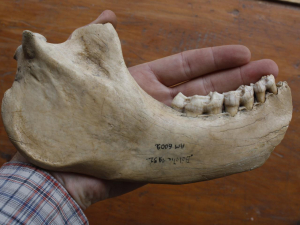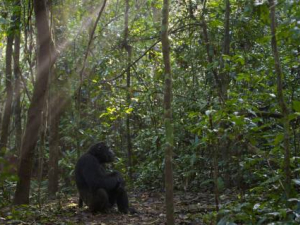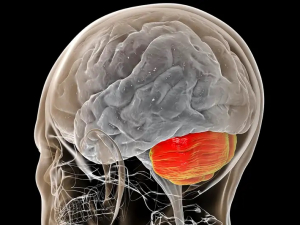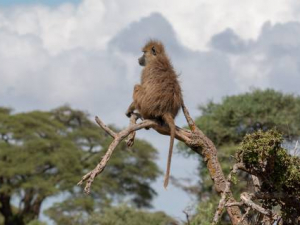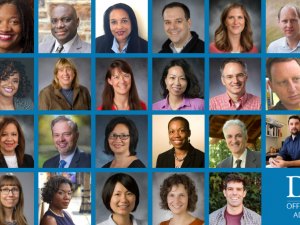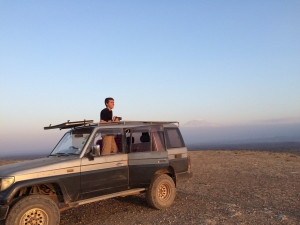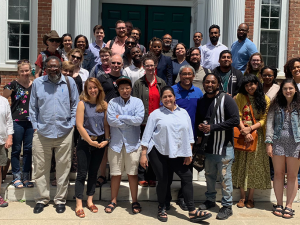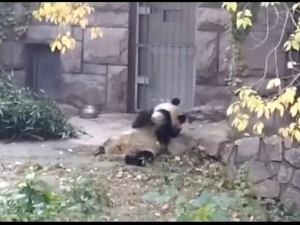When he was an undergraduate political science student, Kerry Haynie was never taught about the 1921 Tulsa massacre. Nor was there much discussion about the role of race in the founding political documents of this country or much examination of how race influenced public services such as sewer lines and zoning. In one sense, a lot has changed. In 2021, Duke’s faculty includes a strong lineup of leading scholars who examine how race is embedded in issues that cross all the schools of the university. This fall, many of… read more about University Course Raises Race as a Central Element of Undergraduate Education »
DURHAM, N.C. – Special diets, exercise programs, supplements and vitamins -- everywhere we look there is something supposed to help us live longer. Maybe those work: human average life expectancy has gone from a meager 40-ish years to a whopping 70-something since 1850. Does this mean we are slowing down death? A new study comparing data from nine human populations and 30 populations of non-human primates says that we are probably not cheating the reaper. The researchers say the increase in human life expectancy is more… read more about Sweeping Analysis Concludes There’s No Cheating Old Age »
DURHAM, N.C. -- What makes preschoolers eat their veggies? Raise their hand? Wait their turn? “Because I say so” is a common refrain for many parents. But when it comes to getting kids to behave, recent research suggests that the voice of adult authority isn't the only thing that matters. Around age three, fitting in with the group starts to count big too. That’s the finding of a new study by Duke University researchers showing that, by their third birthday, children are more likely to go along with what others say or do… read more about Sometimes, Even 3-Year-Olds Just Want to Fit in With the Group »
It typically takes a few years for an academic’s impact to extend beyond their immediate circle. Alma Solis, a second-year Ph.D. student in the Nunn lab, has already helped make academia a less intimidating place for hundreds of students across the country. Her efforts were recognized this Friday, April 30th, with the Evolutionary Department’s first Mossé Outreach Award. “Alma has been here a short time, yet she is already having a positive impact in my lab, the department, and beyond to the university and surrounding… read more about Ph.D. Student Alma Solis Wins 2021 Mossé Outreach Award »
DURHAM, N.C. – Fruits and veggies are good for you and if you are a lemur, they may even help mitigate the effects of habitat loss. A new study sequencing the genome of four species of sifakas, a genus of lemurs found only in Madagascar’s forests, reveals that these animals’ taste for leaves runs all the way to their genes, which are also more diverse than expected for an endangered species. Sifakas are folivores, meaning that the bulk of their diet is composed of leaves. Leaves can be difficult to digest and full of… read more about Flexible Diet May Help Leaf-Eating Lemurs Resist Deforestation »
Four senior faculty members, including Medical School Dean Mary Klotman, have been named Fellows of the American Academy of Arts and Sciences (AAAS). The recipients — all women — represent four of 252 total members elected this year. Founded in 1780, the Academy honors exceptional scholars, leaders, artists, and innovators and engages them in sharing knowledge and addressing challenges facing the world. “We are honoring the excellence of these individuals, celebrating what they have achieved so far, and imagining what… read more about Dean and Three Senior Faculty Elected to American Academy of Arts and Sciences »
DURHAM, N.C. -- Female baboons may not have bills to pay or deadlines to meet, but their lives are extremely challenging. They face food and water scarcity and must be constantly attuned to predators, illnesses and parasites, all while raising infants and maintaining their social status. A new study appearing April 21 in Science Advances shows that female baboons with high life-long levels of glucocorticoids, the hormones involved in the ‘fight or flight’ response, have a greater risk of dying than those with lower levels… read more about Stress and Death in Female Baboons -- as Measured by Hormones in Poop »
DURHAM, N.C. -- Some guys have it all: the muscle, the power, the high social status, the accelerated aging. But wait. Faster aging? Who wants that? For male baboons, it’s the price they pay to be at the top. New research appearing April 6 in eLife by Jenny Tung, associate professor of evolutionary anthropology and biology at Duke University, and her colleagues shows that male baboons that climb the social ladder age faster than males with lower social standing. If a male drops in social status, his estimated rate of… read more about A Male Baboon’s Dominance Gives Him Babies, but Costs Him Years »
Herman Pontzer explains where our calories really go, and what studying humanity’s past can teach us about staying healthy today. read more about Duke Researcher Busts Metabolism Myths in New Book »
The Office for Faculty Advancement has awarded seed grants to 14 faculty-led projects exploring new ideas and expanding existing initiatives to promote an equitable and inclusive academic environment at Duke. The theme for this cycle was "Confronting Racism and Bias: Fostering an Inclusive Community." Faculty Advancement Seed Grants provide a financial head start for novel faculty development initiatives within academic units. 2021-22 Faculty Advancement Seed Grants Art, Art History and Visual Studies Anti-Racist Pedagogy… read more about Seed Grants Help Faculty Lead the Way in Confronting Racism and Bias »
DURHAM, N.C. -- When you think about what separates humans from chimpanzees and other apes, you might think of our big brains, or the fact that we get around on two legs rather than four. But we have another distinguishing feature: water efficiency. That’s the take-home of a new study that, for the first time, measures precisely how much water humans lose and replace each day compared with our closest living animal relatives. Our bodies are constantly losing water: when we sweat, go to the bathroom, even when we breathe.… read more about Humans Evolved to Be the Water-Saving Ape »
Duke's primate researchers travel the globe to observe wild primates, including the chimpanzees of Gombe who were first studied by Jane Goodall, and the baboons of Amboseli, who have been studied for five decades. Longevity in Humans and Chimpanzees Many humans live to see their 80s, some even reach 100. But chimpanzees rarely make it past 50, despite sharing 99% of our genetic code. While modern medicine has added years to human lifespans, a Sept. 2020 Duke study points to a more ancient explanation why humans are the long… read more about Learning From Our Closest Relatives »
DURHAM, N.C. -- Humans aren’t the only mammals that form long-term bonds with a single, special mate -- some bats, wolves, beavers, foxes and other animals do, too. But new research suggests the brain circuitry that makes love last in some species may not be the same in others. The study, appearing Feb. 12 in the journal Scientific Reports, compares monogamous and promiscuous species within a closely related group of lemurs, distant primate cousins of humans from the island Madagascar. Red-bellied lemurs and mongoose lemurs… read more about Lemurs Show There’s No Single Formula For Lasting Love »
DURHAM, N.C. -- Malaria is an ancient scourge, but it’s still leaving its mark on the human genome. And now, researchers have uncovered recent traces of adaptation to malaria in the DNA of people from Cabo Verde, an island nation off the African coast. An archipelago of ten islands in the Atlantic Ocean some 385 miles offshore from Senegal, Cabo Verde was uninhabited until the mid-1400s, when it was colonized by Portuguese sailors who brought enslaved Africans with them and forced them to work the land. The Africans who… read more about Malaria Threw Human Evolution Into Overdrive on This African Archipelago »
We use our mouths to tell stories, but we rarely ask what stories our teeth can tell. Teeth can reveal our age, what we eat, where we come from and may even give hints about how stressed we are. Can they do the same for our extinct hominid ancestors? They just might, with help from a Gordon P. Getty Grant from the Leakey Foundation to a multi-institutional team led by Dr. Richard Kay, Duke professor of Evolutionary Anthropology. This prestigious award honors scientists whose research advances multidisciplinary science… read more about What Can Fossil Teeth Tell Us About Our Ancestors? »
Tell me what you eat, and I’ll tell you your skull shape. Well, not quite, but thanks to a newly-funded grant from the Leakey Foundation, Dr. Justin Ledogar might have some good insights. Dr. Ledogar, an Assistant Research Professor in Evolutionary Anthropology, will examine dietary ecology and feeding biomechanics in a unique group of South American primates, the sakis and bearded sakis, at Brownsberg Nature Park in Suriname. Unlike most other fruit-eating primate species, these monkeys specialize on the nutrient-… read more about New Grant Sheds Light on the Evolution of Primate Skull Shape »
Viruses and bacteria not only make us sick, but have also played an important role in shaping primate evolution. Because pathogens are so large in number and replicate so quickly, we know that the immune system has had to adapt very fast to stay on a level playing field. Still, many open questions about our evolutionary history with pathogens remain. For example, what kinds of disease-causing microbes have been more important—viruses or bacteria? What changes have occurred in primate genomes to deal with these threats? Do… read more about Ph.D. Candidate Jordan Anderson Receives Leakey Foundation grant! »
Last year, a dozen Duke University doctoral students used Graduate Student Training Enhancement Grants (GSTEG) to acquire new skills, knowledge or experiences that will enhance their original research. In these excerpts from their reports, students reflect on what they learned. Jacqueline Allain, Ph.D. in History Birthing Imperial Citizens I used my GSTEG grant to attend the Caribbean Philosophical Association (CPA) Summer School. During this week-long program, I attended seminars led by important scholars of critical… read more about Doctoral Students Gain New Perspectives on Their Research »
We’ve all heard the term “survival of the fittest,” which scientist Charles Darwin famously coined to explain how organisms with heritable traits that give them an advantage — such as avoiding predators or beating out others for the chance to mate — are able to survive and pass on these advantageous traits to their offspring. In his talk with ClubEvMed last Tuesday, Brian Hare of Duke Evolutionary Anthropology explained key points from his new book that he co-authored with his wife and research partner, Vanessa Woods,… read more about The Evolutionary Advantage of Being Friendly »
Aleah Bowie, an associate in research in Evolutionary Anthropology, was quoted in a New York Times article about an unusual project she worked on. The animal behavior expert was emailed about "a peer-reviewed scientific paper by a team of Chinese scientists who had dedicated more than a decade to investigating why giant pandas smear their bodies with mounds and mounds of horse manure." read more about Why Are Pandas Covering Themselves With Horse Manure? »

